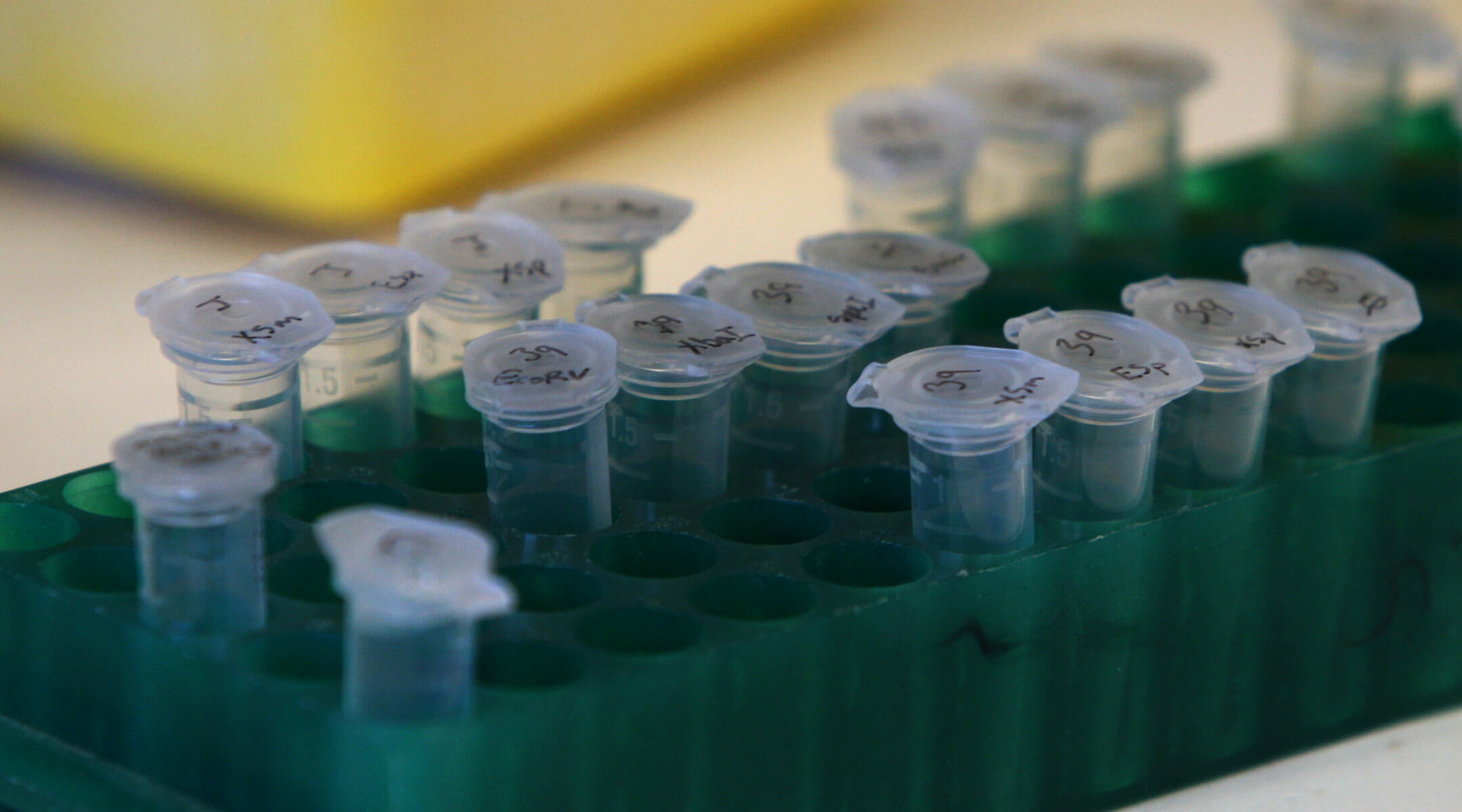That is just one reason to be wary of the claim by a team of Israeli scientists under the leadership of Dr. Ilan Morad, CEO of Accelerated Evolution Biotechnologies, that they will likely perfect a revolutionary cure for all cancer — at low-cost and with minimal side-effects, no less — in the next year.
There are a number of other reasons to be skeptical.
The company released few details about the putative cure called MuTaTo, for multi-target toxin. Reportedly, it uses cancer-targeting peptides, which are chains of amino acids, the building blocks of proteins, linked to a toxin that kills cancer cells.
By using several targeting peptides linked to a potent toxin, Dr. Morad said they “made sure that the treatment will not be affected by mutations; cancer cells can mutate in such a way that targeted receptors are dropped by the cancer.” In other words, their approach would supposedly prevent cancer cells from losing their susceptibility to the toxin.
That simplistic description is unsatisfying. Cancer is complicated on many levels–biology, prevention, diagnosis and treatment. For one thing, it is many different diseases, with distinct structures and metabolism, and we have learned in recent years that even what appears to be the same type of tumor under a microscope — lung, breast, brain, and so on — can have many different causes and prognoses. For example, although most lung cancers and tumors of the throat are caused by cigarette smoking, some lung cancers are related to a genetic mutation that is not at all related to smoking, and some throat cancers are strongly related to a viral infection (human papilloma virus). Blood-borne cancers, such as leukemia, are different still.

There have been breakthroughs in cancer therapy, but they have largely focused on individualized therapies, rather than an “off the shelf,” universal cure. A good example is a treatment for advanced lymphoma called “CAR-T,” an astonishing tour de force approved by the FDA in 2017: In a complex, multi-step process, it involves removing immune system cells known as T cells from each patient and sending them to a highly specialized manufacturing center where they are genetically altered to include a new gene that directs the T cells to target and kill the cancer cells. The modified cells are then infused back into the patient. This is the second such approved treatment: a different CAR-T therapy for a form of acute lymphoblastic leukemia was given the green light by regulators in August. This approach is the epitome of personalized medicine.
Animal experiments suggest that CAR-T therapy could transform the treatment of other kinds of cancers as well.
As our knowledge of cancer has accumulated, treatment increasingly relies on a combination of approaches. For example, the field of radiation therapy has changed not only in the technology of treatment delivery, but also has benefited from greater understanding of cancer biology and immunology. Radiation therapy combined with chemotherapy is now routine, as we have learned about the synergy of cell-killing with combined modalities of therapy.
We are also learning that when used in the right manner (which we don’t yet fully understand), radiation can stimulate the immune system and thus augment cell-killing in areas of the body that have not been irradiated. Researchers have also benefited from the genomics revolution, which enables them to define more precisely, from biological characteristics, the patients who are likely to benefit from radiation treatments and those who are not.
There are plenty of reasons, scientific and otherwise, to doubt Dr. Morad’s claims.
First, responsible scientists don’t make announcements of revolutionary scientific or medical breakthroughs, in the absence of convincing data in peer-reviewed publications, or at the very least, presented in detail at professional conferences.
Second, the findings on which the claims are based are from “exploratory” mouse studies. But researchers on cancer and other diseases have learned that rodent studies frequently don’t translate well to humans, and that the path from the laboratory to the clinic and pharmacy is often plagued by unforeseen obstacles.
Third, clinical trials of at least some types of cancer would require years to conduct. Even if data were in hand for, say, a certain subset of breast cancers, there is no guarantee that the results would be translatable to any other cancers, let alone all.
Finally, the scope and definitiveness of the claims for the new treatment strain credulity. “We believe we will offer in a year’s time a complete cure for cancer,” said Dan Aridor, chairman of the board of Accelerated Evolution Biotechnologies. “Our cancer cure will be effective from day one, will last a duration of a few weeks and will have no or minimal side-effects at a much lower cost than most other treatments on the market.” Such claims about both safety and efficacy are, literally, incredible, in the absence of human clinical trials and peer-reviewed, published data.
The scientific community has reacted with justifiable suspicion, and even outright derision, to the bombastic announcement. A typical response was that of Dr. Benjamin Neel, director of Perlmutter Cancer Center at NYU Langone Health, (as quoted in the NY Post), that “cancer is multiple diseases, and it is highly unlikely that this company has found a ‘cure’ for cancer any more than there is a single cure for infections.” He continued, “more likely, this claim is yet another in a long line of spurious, irresponsible and ultimately cruel false promises for cancer patients.”
It would be a godsend to have a low cost, minimally toxic, universal treatment for the scourge of cancer, but we need more evidence than unsupported, grandiose public statements.
This is an expanded version of an article that appeared in Newsweek.
Henry I. Miller, a physician and molecular biologist, is a senior fellow at the Pacific Research Institute in San Francisco. He was the founding director of the US FDA Office of Biotechnology. Follow him on Twitter @henryimiller































